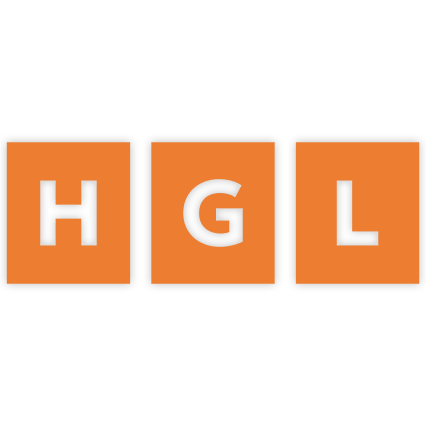

Charlotte Estate Administration Lawyer
At Hicks-Guinn Law, we recognize the complexities of estate administration, whether it involves probate or trust administration after a loved one’s passing. We are here to provide professional legal support to executors, trustees, beneficiaries and other parties involved in these proceedings.
Attorney Robyn Hicks-Guinn brings a deep understanding of the intricacies of North Carolina estate law, which she combines with personalized service, empathy and sensitivity throughout these processes. Our firm’s approach makes us the ideal partner in navigating estate administration.
Regardless of your role in probate or trust administration, we can assist in protecting your interests and fulfilling your responsibilities as we smooth the way toward a satisfactory conclusion.
Request a consultation with our Charlotte estate administration attorney by submitting our contact form or by calling us at (888) 373-9699.
What Sets Us Apart From The Rest?
Hicks-Guinn Law, PLLC is here to help you get the results you need with a team you can trust.
-
Experienced FirmBenefit from the wealth of experience our team brings to your side. In addition to successfully handling numerous cases, Robyn Hicks-Guinn also shares her expertise by instructing and mentoring other legal professionals.
-
Personalized SolutionsWhen you choose our firm, you will receive personalized legal representation. We will take the time to get to know you and work closely with you to develop a strategy tailored to your needs.
-
Flexible ConsultationsWe are flexible and committed to meeting you wherever is most convenient. Whether it's at your home, in a hospital, or through a virtual consultation, we ensure accessibility across the entire state.
-
Every Case Prepared for Court
Every case is meticulously prepared for court, ensuring that our clients receive the best representation and our commitment to achieving optimal outcomes for those we serve.
Probate in North Carolina
Probate is a legal process that takes place after a person passes away. It involves validating the deceased person's will, inventorying their assets, paying debts and taxes and appropriately distributing the remaining assets to the heirs or beneficiaries.
The initial step in probate is the appointment of an executor or personal representative, who is usually named in the will. If there is no will or no designated executor, the court appoints a personal representative. The representative has a fiduciary duty, which requires them to act in the best interests of the estate and its beneficiaries.
Types of Probate
In North Carolina, there are essentially three types of probate methods:
- Claiming Personal Property by Affidavit: This method is used when the total value of the decedent's personal property is $20,000 or less ($30,000 if the spouse is the sole heir). After 30 days from the date of the decedent's death, the heir or devisee can prepare an affidavit to claim the personal property.
- Summary Administration (also known as summary probate): This probate method is applicable when the decedent's personal property does not exceed the sum of allowances, costs and expenses of administration, statutory commissions and medical and funeral expenses.
- Full (Standard) Administration: This probate method is necessary when the decedent's estate cannot qualify for the two more straightforward methods mentioned above.


-
I had a sensitive matter that needed to be handled quickly and efficiently and they took care of my needs. I would recommend their services anytime!- Tedra B.
-
From the first meeting Robyn was very knowledgeable, professional and empathetic which I highly value. Robyn and team genuinely cared about making sure I got the information that I needed to make the best decision.- Amara R.
North Carolina Trust Administration
Trust administration is the management of a trust's assets according to the trust document and applicable law following the death of the trust's creator. It encompasses various tasks, including notifying beneficiaries and relevant parties, gathering and managing the trust's assets, handling taxes and ultimately distributing the trust assets to the beneficiaries.
Unlike probate, trust administration does not fall under court supervision. Thus, it can be accomplished much faster. However, trust administration can be a challenging process, with its own set of complexities separate from probate.
The trustee, who is responsible for managing the trust, may need legal support to understand their responsibilities and avoid potential legal pitfalls. Beneficiaries might also seek legal counsel to ensure their interests are protected. As in the probate process, trustees are subject to fiduciary duty, meaning they must act in the best interests of the beneficiaries; failure to do so can lead to legal liability.
Like with probate, a lawyer can provide much-needed assistance in trust administration. Legal knowledge can help you avoid misunderstandings, resolve disputes and ensure that the process follows the stipulations of the trust document and complies with the law.
Work with a Trusted Estate Administration Lawyer
At Hicks-Guinn Law, we can help you through the probate or trust administration process to ensure it is handled correctly under applicable law. Whether you have been named executor or trust administrator or are an heir, beneficiary, or other interested party, we can help you navigate the legal system for optimum results.
Our attorney has focused most of her career on North Carolina estate law and procedures to the point where she now instructs other lawyers on these matters. She and her team are committed to providing you with the highest standards of professionalism.
Contact us online or at (888) 373-9699 for legal help today.